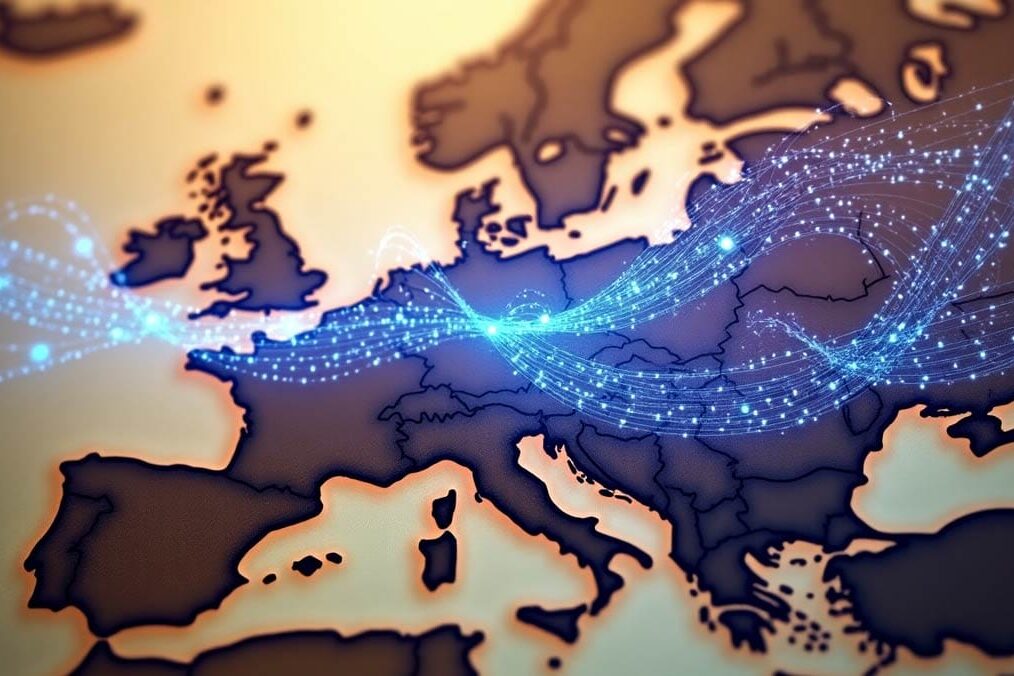When we think about leaders in artificial intelligence (AI) we typically think of the USA or China, or possibly Japan. However, France is also emerging as an important part of the AI landscape. France has national ambitions to become a leading AI power. A national AI strategy was launched in 2018, with two government agencies involved: INRIA (National Institute for Research in Digital Science and Technology) and the Ministry of Higher Education, Research and Innovation. Since the funding for this was €1.5 billion over five years, this is not just an academic exercise. Interdisciplinary AI institutes have been set up in Nice, Grenoble, Toulouse and Paris. There are also sector initiatives, such as the “Health Data Hub”, which provides secure access to health datasets for research and AI development. The French Ministry of Armed Forces runs AI4Defence projects for autonomous systems and decision-support tools. France also collaborates actively in EU-wide initiatives such as the Horizon Europe AI research clusters. The French ecosystem blends public funding and private venture capital more tightly than Silicon Valley-style models, driven by goals of autonomy and ethical AI. There is also the PEPR (Programme et Équipements Prioritaires de Recherche) for large-scale AI research programs.
A standard bearer for France in AI is Mistral, which has its own large language model. It was founded in 2023 by former DeepMind research scientist Arthur Mensch and former Meta AI researchers Guillaume Lample, and Timothé Lacroix. The Mistral model is, naturally enough, fluent in French and other European languages, and raised €1.7 billion in its series C round in September 2025, at a valuation of €11.7 billion. Mistral has partnerships with Microsoft Azure and Capgemini–SAP for distribution.
The Mistral LLM has fully open model weights, unlike competitors like ChatGPT and Claude, whose models are proprietary. It was designed for cost-effectiveness, and in benchmarks, it has been shown to outperform other models several times its size, such as Llama 2 13B, while using less compute power and memory. It has an open-source Apache 2.0 license, allowing free commercial use; by comparison, Llama has a Meta-controlled license. Its openness and more lightweight scale make it well-suited to implementations using retrieval augmented generation (RAG) and retrieval augmented fine-tuning (RAFT). It has a high token limit compared to some other LLMs and is easy to use, though it lacks the tool integration of products like Anthropic’s Claude. Mistral at this stage is more “raw” than some competitors in terms of third-party plug-ins, tutorials and support materials. The Mistral models are not as instruction-tuned as ChatGPT, so they may require additional fine-tuning for alignment. It lacks native guardrails, so safety and alignment are left up to the implementers. Mistral is particularly well-suited to multi-language AI applications and situations where efficiency and openness are important.
Although Mistral is a standard bearer, it is far from the only AI company in France. There are over five hundred AI start-ups in France in late 2025. Examples include Dataiku, which specialises in enterprise AI and data science platforms, enabling collaborative development of data projects for large organisations. There is Owkin, a healthcare AI company doing predictive analytics for drug discovery and clinical research. Mirakl: Offers AI solutions in e-commerce and retail. There is AnotherBrain, which develops “organic AI” inspired by the human brain, with applications in manufacturing and automotive quality control. A company called Craft AI provides MLOps and generative AI solutions for businesses, focusing on reliability and security. Probayes delivers AI and data science solutions with expertise in predictive analytics. Poolside AI is a generative AI company, which closed a $500 million funding round in October 2024 at a valuation of $3 billion, with investors including Bain and NVIDIA. There is Stonal, an AI-driven real estate data platform, automating property data management and analysis. Even the well-known AI infrastructure company Hugging Face, although based in New York, has French roots. It has a valuation of $4.5 billion based on its series D funding round in August 2023, with investors including Google, Amazon and NVIDIA. Its CEO and co-founder is Clément Delangue, who grew up in northern France, while its co-founder, Julien Chaumond, is also French. In all, France has 12% of AI workers in Europe, behind only Germany (14%) and the UK (24%).
Certainly, compared to the USA and China, the resources being poured into AI in France are relatively small. It remains to be seen whether the early success of companies like Mistral can be converted into a long-term competitive advantage. France does have some large software companies, particularly Dassault Systèmes, but other previous high-flying French software firms often ended up being acquired by foreign companies. An example was Business Objects, which was acquired by SAP. Time will tell whether the French government’s backing of the AI sector will help the country become a major player in AI.







